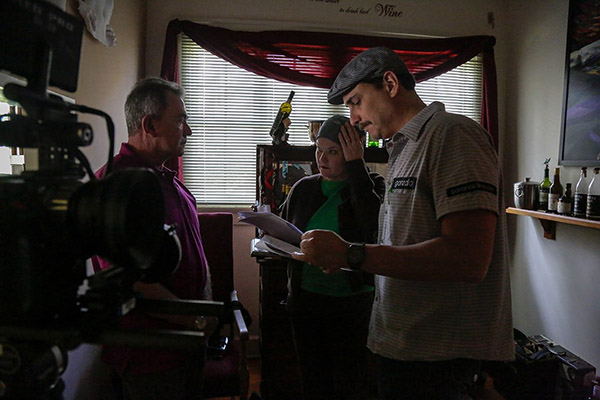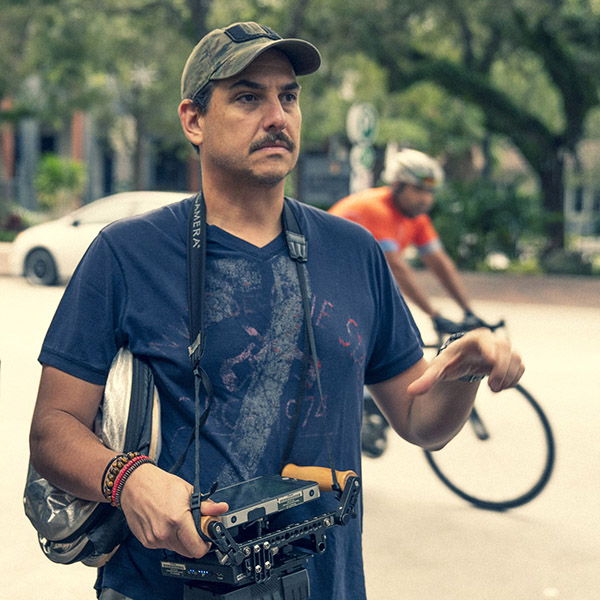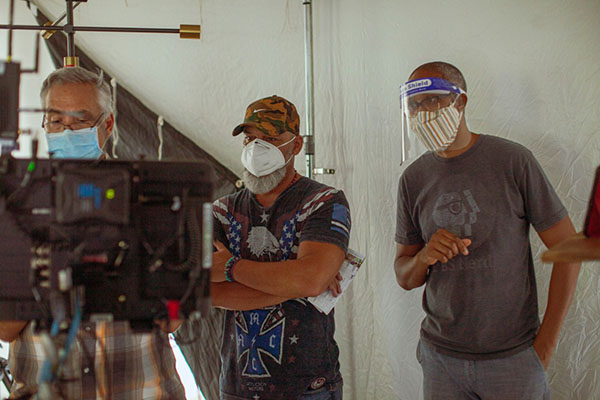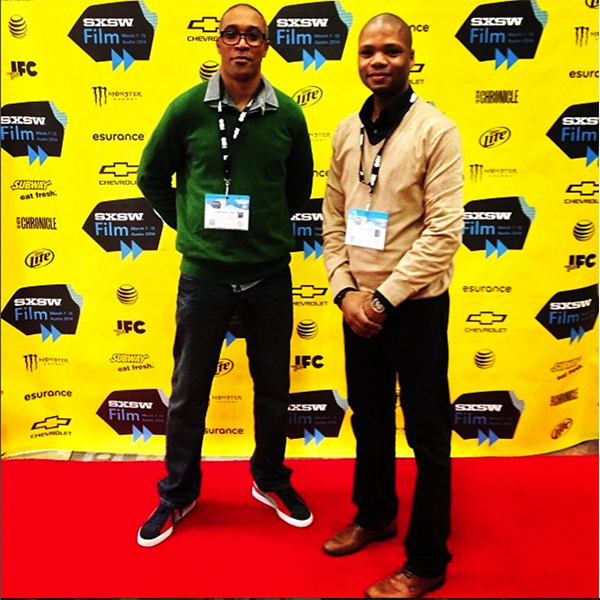 Events
Events
 Events
Events
 Events
Events
 Events
Events


We are pleased to announce thatXooplabs Studios/Paridrishya in partnership with Media for Change has been awarded the social behavior change communication design strategy and implementation project by Himmotthan Society, an initiative of Tata Trusts. The scope of the project is to induce awareness and motivation amongst the community members about participatory springshed management and then creating tools for facilitation of the same.
With Covid-19 pandemic, Tata trust realized that using conventional methods of on ground mobilization and implementation wouldn’t be as effective. Hence this project focuses on solutions / processes that can be digitally implemented and monitored on ground with minimum human intervention. The behavior change modules and content being designed are self explanatory and will come with clear standard operating procedures. This approach will allow other organizations under Tata Trusts working on spring shed management to implement the project in their respective geographical areas with minimal contextual improvisation.
Currently, the project is being implemented in eastern and central Himalyan ranges across the state of Uttrakhand and Nagaland in India. The project is expected to culminate in Jan 2021. Mr. Mohit Gulati from Xooplabs and Mr. Divyang Waghela and Mr. Vinod Kothari from Tata Trust are the designated project leads. Media for Change directors Mr. Sanjeev Chatterjee and Ms. Alice Ackermann have been designated as advisors on this project.

REGISTER HERE for our first conversation with Dr. Arvind Singhal on Thursday, October 8, 2020 at 11am EST.
Media for Change is collaborating with the Salzburg Academy on Media and Global Change along with numerous international partner institutions to host a series of virtual workshops and conversations over the next 6 months. The series, entitled Protest, Pandemic and Power: Media Literacies and Global Futures is aimed at discussing and evaluating the role of the media on different aspects of our lives in today’s fraught mileu across the world. A detailed program will be available soon.

Kaleidoscope MusArt is a non-profit organization dedicated to bringing contemporary Western classical music to new audiences. Based on a common mission of using media to create change, Media for Change is collaborating with Kaleidoscope MusArt to create audio-visual content for wide dissemination. Stay tuned for online concerts, social media campaigns and much more this fall.
 Profile
Profile

Gonzalo Mejía grew up scrutinizing MTV music videos as a young child in Ecuador—it seemed everyone in his close circle knew that he’ll grow up to be a filmmaker, except for him. Mejía didn’t fully realize his passion for film until he started college at the University of Miami, where he surrounded himself with friends who were studying film and quickly fell into line with his peers.
“I probably never realized film as a career because over 20 years ago, if you told your parents or friends, ‘hey I want to be a filmmaker,’ people would say ‘you’re crazy,’” Mejía said.
Despite the opinions Mejía went ahead with his goal of becoming a filmmaker. During his time at the School of Communication at the University of Miami he would meet an important mentor, Sanjeev Chatterjee. Mejía said his first impression of Media for Change founder was intimidating, to say the least, but once he began to take classes with Chatterjee, he soon considered his film professor a role model.
Even after Mejía graduated, he and Chatterjee never lost touch—and Chatterjee actually hired Mejía, then back in Ecuador, to line produce his award-winning documentary One Water, about the global water crisis so many know so little about.
At the beginning of his professional career, Mejía opened an ad agency in Ecuador, and after 5 years, this very job forced him to come to terms with his true calling: filmmaking. He decided to return to the U.S., Mejía lived in New York and Atlanta, where he began his own production company, Bananas Films, which he started mainly to produce narrative feature and documentary films, but eventually began producing dozens of commercial video content for big name brands in both English and Spanish. Quite a few years after, Mejía would move his business back to Ecuador, where he said he pioneered the online video content industry, were his production company singlehandedly created the highest number of online videos in the country at the time.
For him, owning his own business was the end goal, and he was adamant about remaining self-employed. Luckily, there was one condition to his steadfast rule.
“90% of my career has always been on my own,” said Mejía. “So, I said I don’t ever want to work for anyone—unless I work for UM. And suddenly I got this offer from the Frost School of Music where I work now, and even though I still keep Bananas Films going, I’m more invested in UM at the moment.”
Four years ago, Mejía became the Director of Media Production Services for the Frost School of Music. There he creates all of the school’s audio and video content as well as online graduate courses for Frost Online.


Another serendipitous event occurred as Mejía moved his life back to Miami—Chatterjee asked him to join Media for Change as the Director of Sustainability. Mejía said he was more than flattered when Chatterjee, whom he described as his “go-to person” and someone he aspired to be like, extended the offer, and accepted it on the spot.
Now, Mejía will join the Board of Directors as the Director of Organizational Administration, a new role he said will entail seeing projects through their courses and making sure Media for Change is “keeps moving forward.” Besides monitoring the progress of certain projects, he said he is also “connecting with nonprofits around Miami to spread the word that we exist, and find out how we can lend a hand.”
It is the perfect role for Mejía, who says filmmaking and helping others are both a part of his DNA. Growing up in Ecuador, he said, his parents were always involved in helping others. They always found ways to feed, clothe, provide health, educate and even find homes for the less privileged. Mejía now feels that he’ll continue their legacy in the form of storytelling alongside Media For Change.
“I always say film can cure any disease,” said Mejía. “And the reason is because it’s the best way to connect, besides person to person.”
 Profile
Profile
by Isabella Vaccaro
Media for Change’s newest member and Director of Incubations Chad Tingle spent the onset of his career in film working various odd jobs that gave him a comprehensive understanding of the industry. Today, he owns his own production company, Crown Street Films, and joins Media for Change with a passion to help a younger generation of filmmakers find their way.
Tingle was born in Jamaica and grew up in Brooklyn, where he says his mother had dreams of him becoming a physical therapist because of its potential for employment opportunities. But even back then, Tingle knew that storytelling, rather than science, was going to be his ticket.
At the University of Miami, Tingle fell into the right group of friends—students majoring in screenwriting, film and broadcasting—and even met Media for Change founder Sanjeev Chatterjee, who was his professor and mentor. Tingle says it was through these connections that he was inspired to study and hone his film editing skills, chalking it up to ‘osmosis’ or the fact that he was always surrounded by creatives.

“He [Chatterjee] was the first professor who wasn’t afraid to throw me into some real-world situations and say, ‘hey, you know, go run with this and if you make a mistake, you make a mistake, but, you know, go do it,” Tingle said.
Chatterjee invited Tingle and a couple of other students to work on a documentary project during Tingle’s junior and senior year at UM called “Big Plans,” which followed a UM football player and rapper trying to launch his career. Tingle recalls using Chatterjee’s digital camera at the time—a Sony DX 1000—to shoot the film, reminiscing about a project that not only armed him with helpful skills but whose topic mirrored his own ‘big plans’ for his life.
“What really appealed to me, was telling stories about real people,” said Tingle. “I didn’t necessarily understand all the ins and outs, but I understood that I had this ability to tell stories about real people and to do a form of storytelling where you could still have emotion and drama and conflict but understand where those people were coming from based on a lived experience.”
After graduation, Tingle worked in the dub room at a post house in Miami, which he said was a ‘great learning experience,’ but he ultimately didn’t see a future for himself at the company. He then got a job in tech support at a company that built editing systems for churches, schools and municipalities. Tingle said he quickly became an asset because of his knowledge of nonlinear editing and, through the job, eventually learned how to build computers. Taking with him the knowledge he gained from these companies, Tingle again shifted gears and began working for Midtown Video Miami, where he made a slew of professional contacts in the distribution world.

Through it all, however, Tingle and his college friends managed to convene on their off days to work on their passion projects (documentaries, films, etc.) in hopes of one day leaving their day jobs.
“We kind of all convalesced in this one house in South Miami that my friend Jamie and Rob rented,” said Tingle. “We had two edit suites and they lived in the house. I lived by myself, but it was kind of like this place where I worked, but I also hung out there.” Tingle referred affectionately to the group as “this little unit trying to make stuff happen.”
In 2002, Tingle was working as a production assistant for “Too Fast, Too Furious,” which shot in Miami, when he totaled his car in an accident. In an instant, the trajectory of Tingle’s career changed again, and he began waiting tables to make some quick money. Though he admits the change felt humiliating at first, Tingle said it turned out to be one of his most important career moves. Not only was Tingle able to come out of his shy shell and form his own opinions, he realized some striking comparisons between the food and film industries.
Tingle said that in film, the grips, electricians and camera people “do the hard butt-busting work that makes the director and the director of photography look good, and they don’t really get much of the credit. Those are the people in the kitchen staff.” As a waiter, Tingle got a feel for what it was like to be in the ‘front of house,’ like a producer or director, as he would be the one to get tipped if guests enjoyed the meal.

At 28, Tingle took one last stab at a career in film and began working closely with a Scottish producer on service jobs, which set up international production companies with locations, casting and other logistics so they could shoot in America. Tingle eventually worked his way up from a production assistant to a production manager to becoming a full-time producer of commercials.
Tingle realized that he now had the time and resources to finally pick up where he and his friends had left off in starting their own production company. Thus, Tingle’s company, Crown Street Films, was born. Named after the street Tingle grew up on in Brooklyn, Crown Street Films produces a variety of commercials, branded content, documentaries and more.
“Crown Street Films is kind of like a mixture of using the commercial work to subsidize the work that I really want to do,” said Tingle. “So, the goal is to, every year, work on a documentary project.”
So, when Tingle got a call from Chatterjee asking him to be the Director of Incubations at Media for Change, he knew, like every other step in his career, that this one was divinely guided, too. As the Director of Incubations, Tingle is responsible for securing projects for Media for Change to adopt or helping other filmmakers secure funding for their projects. Additionally, Tingle hopes to bring on other storytellers and help young creatives get their footing in an industry he knows well.
“I also kind of felt that as I approached my 40s, now I was at a place where I should be giving back,” said Tingle. “I was always trying to figure out how I was going to do that. And so, yeah when he [Chatterjee] called me, it made sense.” Tingle also hopes to mentor young black filmmakers in South Florida, because he noted that “there’s a certain part of the business, like at the upper above the line portion, where there’s not a lot of people who look like me.”
There is no doubt Tingle’s unrelenting passion for filmmaking led him to a fulfilling career and now, as the newest member of Media for Change, a chance to give back to his community.
